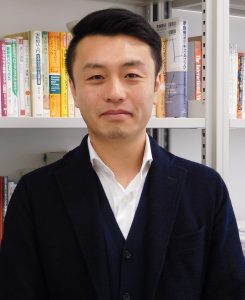Our Faculty
Prof. KOZUKA Takahiro
Professor of Family Psychology, Department of Psychology and Human Developmental Sciences, Graduate School of Education and Human Development, Nagoya University

Employment History
- Associate Professor, Graduate School of Education and Human Development, Nagoya University, 2018
- Associate Professor, Faculty of Human and Cultural Sciences, Sakushin Gakuin University, 2014
Educational History
Ph.D. in Education, University of Tohoku, 2014
Research Interests
- Family psychology including groups and communities
- family relations and family therapy based on systems theory and “pragmatics of human communication”
- Psychological support in crisis situations such as disaster area, community, school and organization
Recent Main Publications
- Kozuka, T., Utsumi, A., Wakashima, K., & Shimizu, K. (2021). Family Structure and Adolescent Eating Disorder Tendencies. International Journal of Brief Therapy and Family Science, Vol. 10, No.3, 26-41. https://doi.org/10.35783/ijbf.11.1_26
- Yu, K., Kozuka, T., & Yashiro, T. (2020)Case study on rebuilding the marital relationship of an elderly couple facing a psychological crisis. International Journal of Brief Therapy and Family Science, Vol.10, No.2, 22-28. https://doi.org/10.35783/ijbf.10.2_22
- Kozuka, T. & Kumakura, S. (2017). Utilization of resources for psychosocial support: Focusing on the practice in earthquake disaster. Japanese Journal of Community Psychology, 21(1), 37-40.
- Kozuka, T., Asai, K., Hiraizumi, T., Usami, T., Wakashima, K. & Hasegawa, K. (2011). An Attempt to Reconsider the Essence of Brief and Family Therapy. International Journal of Brief Therapy and Family Science, 1(1), 88-92.
- Kozuka, T. (2011). Family structure and communication in adolescence: Examination with family stress. Japanese Journal of Family Psychology, 25(1), 30-44.
- Kozuka, T & Wakashima, K. (2009). The typology and change of human relations based on communication patterns: From the viewpoint of “pragmatics of human communication”. Japanese Journal of Counseling Science, 42, 1-10.